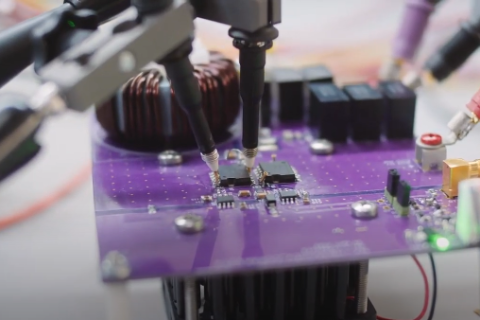The Dutch government has stepped back from its emergency intervention at chipmaker Nexperia, easing a months-long confrontation with China that disrupted global automotive supply chains and raised questions about Europe's handling of foreign ownership in strategic industries. Dutch Economic Affairs Minister Vincent Karremans said he suspended an order that effectively transferred control of the company to the state, citing "constructive" discussions with Chinese officials and consultations with partners across Europe and beyond.
The Chinese Ministry of Commerce responded that the halt represented a "first step in the right direction," while insisting the Netherlands fully revoke the measure it labeled the "root cause" of the semiconductor disruptions. The decision follows Beijing's move earlier this month to lift an export block on Nexperia products manufactured in China, a restriction imposed after The Hague acted under the Cold War-era Goods Availability Act.
According to Karremans, the latest talks indicated that Chinese regulators appeared to be allowing "companies from European and other countries to export Nexperia chips," which he described as "an important step." He added in a letter to parliament that the government would continue discussions with Beijing in the coming weeks. The ministry called the timing "the right moment to take a constructive step."
The dispute began in September, when the Dutch government invoked emergency powers to take effective control of Nexperia, a Dutch-based manufacturer owned by Wingtech of China. Officials said they needed to ensure chip availability amid concerns that the company's former CEO, Zhang Xuezheng, might shift manufacturing activity or intellectual property to China. Dutch courts later ruled against Zhang over alleged mismanagement, a decision China denounced as an "erroneous ruling."
Beijing's retaliation-blocking exports of Nexperia components built in China-had immediate global consequences. Japanese automakers Honda and Nissan cut production due to lack of access to certain components, while Germany's Mercedes-Benz disclosed that it had taken short-term measures to secure supply. The intervention also came after U.S. officials reportedly warned the Netherlands that Nexperia risked being added to Washington's sanctions list unless Zhang was removed, though Dutch authorities deny operating under U.S. pressure.
Economic experts say the episode underscores Europe's struggle to build a unified strategy for managing Chinese participation in critical technology sectors. Jo Van Biesebroeck, an economics professor at KU Leuven, said Europe's approach to China in sensitive supply chains remained a "work in progress." He noted that "the Nexperia action was triggered by specific actions, and the main worry now seems to be diminished with the personnel change at Nexperia."
European Union trade chief Maros Sefcovic welcomed the Dutch suspension, saying it would help stabilize strategic supply chains. "Continued constructive engagement with partners remains essential to securing reliable global flows. I stay in close contact with all my counterparts," he said in a post on X.
Shares of major European automakers showed little immediate reaction. At mid-morning in Europe, Stellantis was up 0.1% in Milan trading, while Volkswagen, Mercedes-Benz Group and BMW all traded slightly lower in Frankfurt.





